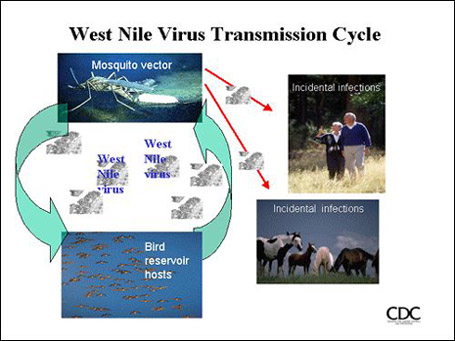 |
|||
West Nile Home News Releases Public Information Health Care Provider Information Surveillance 2004 2003 2002 2001 U.S. 1999-2004 Dead Bird Collection Photo Gallery Other Links |
 West Nile (WN) virus is amplified during periods of adult mosquito blood-feeding by continuous transmission between mosquito vectors and bird reservoir hosts. Infectious mosquitoes carry virus particles in their salivary glands and infect susceptible bird species during blood-meal feeding. Competent bird reservoirs will sustain an infectious viremia for 1 to 4 days subsequent to exposure, after which these hosts develop life-long immunity. A sufficient number of vectors must feed on an infectious host to ensure that some survive the extrinsic incubation period (approximately 2 weeks, depending on temperature) to feed again on a susceptible reservoir host. People, horses, and most other mammals are not known to develop infectious-level viremias very often, and thus are probably "dead-end" or "incidental-hosts." |
||